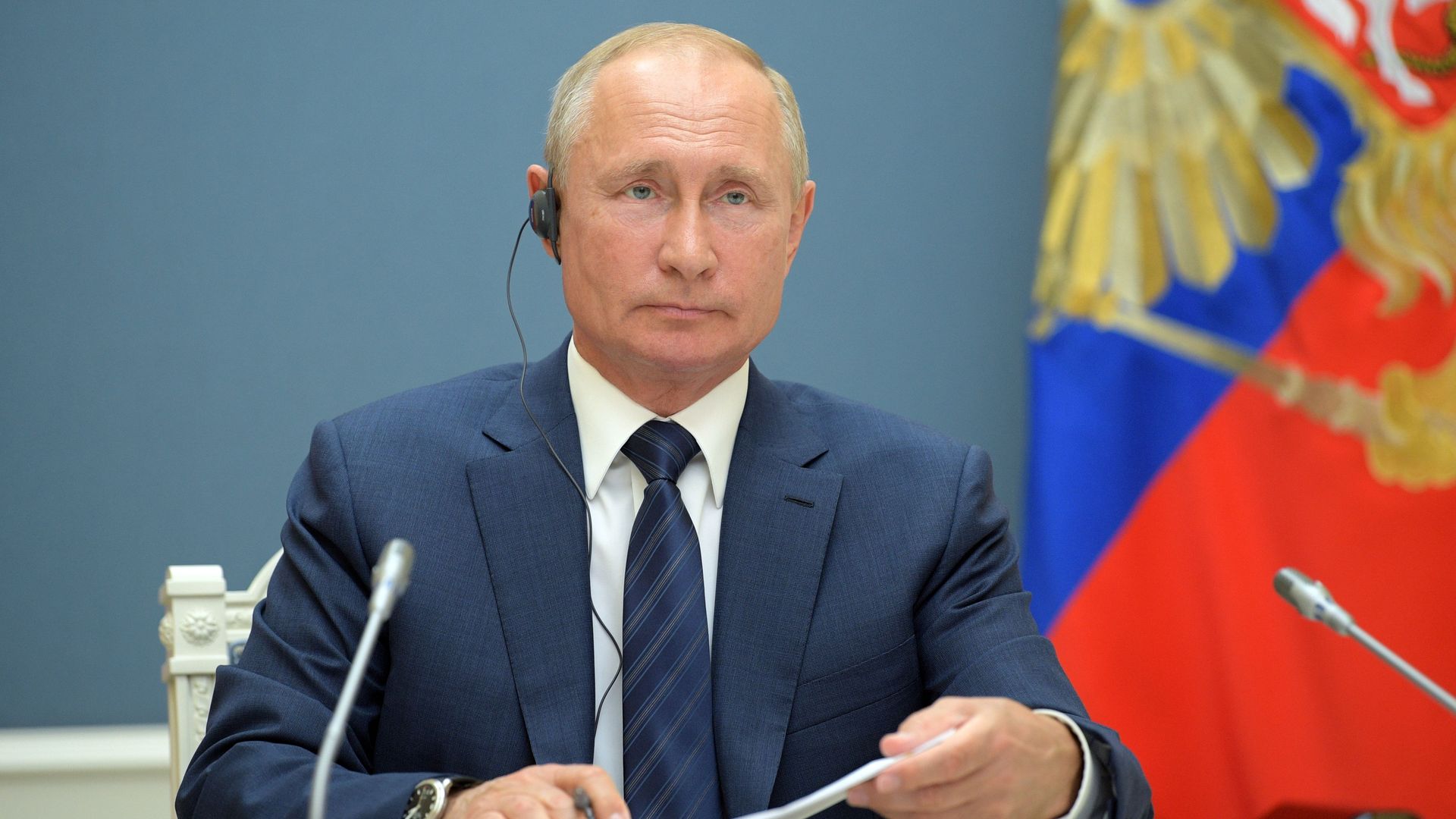Why you should be skeptical of Russia's coronavirus vaccine claims
Add Axios as your preferred source to
see more of our stories on Google.

Photo: Alexey Druzhini/Sputnik/AFP via Getty Images
Russian President Vladimir Putin announced Tuesday that his country has registered a coronavirus vaccine and said that one of his daughters has already been inoculated, AP reports.
Why it matters: Scientists around the world are skeptical about Russia's claims. There is no published scientific data to back up Putin's claims that Russia has a viable vaccine — or that it produces any sort of immunity without significant side effects.
- A Russian vaccine has not gone through any phase three trials, which are lengthy and involve thousands of participants for testing.
- Experts caution that introducing a vaccine to the population without widespread testing could have serious negative consequences, including unexpected side effects or simply undermining public trust in their efficacy.
What he said: "I know it has proven efficient and forms a stable immunity, and I would like to repeat that it has passed all the necessary tests," Putin told a news conference.
- He claimed his daughter is "feeling well and has high number of antibodies."
The state of play: The vaccine race has become a competition between rival global powers. Getting the first viable coronavirus vaccine would be a boon for Russia's international prestige, which Putin is desperate to bolster.
- According to the U.S, U.K. and Canada, hackers linked to Russian military intelligence have attempted to steal vaccine research in order to aid their own efforts.
- Former FDA Commissioner Scott Gottlieb tweeted that the announcement "may be another effort to stoke doubts or goad [the U.S.] into forcing early action on our vaccines." He also told CNBC that he "wouldn't take it."
The big picture: There are three vaccines worldwide — one each from the U.S., U.K. and China — that have entered or are headed toward phase three trials.
- There are at least 16 other vaccines currently in clinical trials in Australia, France, Germany, India, Russia, South Korea, the U.K., the U.S. and China.
- Experts are increasingly confident that it's no longer a question of if but when vaccines will eventually be available.
- But they caution that we won't know how effective they are in protecting against COVID-19 — and for how long — until after phase three trials are completed.

